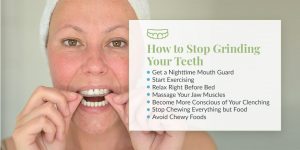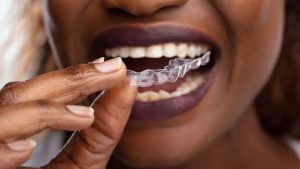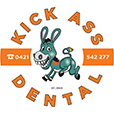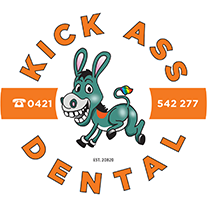How to Stop Grinding Your Teeth: Tips and Techniques
Teeth grinding, also known as bruxism, is a common dental issue that can lead to various oral health problems. Whether it occurs during the day or at night while you sleep, teeth grinding can result in worn-down teeth, jaw pain, headaches, and even disrupted sleep. If you’re looking to put an end to teeth grinding, here are some effective strategies to consider:
Understanding Bruxism
Before we delve into solutions, it’s important to understand the causes of teeth grinding. Bruxism can be attributed to various factors, including stress, anxiety, misaligned teeth, and certain medications. Identifying the underlying cause can help tailor your approach to managing and stopping teeth grinding.
1. Stress Management
Incorporating Relaxation Techniques
One of the leading causes of teeth grinding is stress and anxiety. Engaging in relaxation techniques such as deep breathing, meditation, and yoga can help reduce overall stress levels. By incorporating these practices into your daily routine, you may find that your teeth grinding decreases over time.

2. Dental Approaches
Using a Mouthguard
If you grind your teeth primarily during sleep, a dental mouthguard can be incredibly beneficial. Custom-fitted by a dentist, these mouthguards create a barrier between your upper and lower teeth, preventing them from grinding against each other. Over time, this can help alleviate the damage caused by bruxism. https://kickassdental.com.au/
3. Lifestyle and Habits
Avoiding Stimulants
Certain substances like caffeine and alcohol can exacerbate teeth grinding. Cutting back on or avoiding these stimulants, especially in the hours leading up to bedtime, can contribute to reducing bruxism episodes.
4. Jaw and Muscle Relaxation
Warm Compresses and Jaw Exercises
Relaxing the jaw muscles can minimize the tendency to grind teeth. Applying a warm compress to the jaw area before bed can help relax the muscles. Additionally, gentle jaw exercises, like opening and closing the mouth slowly, can contribute to overall jaw relaxation.
4. Sleep Environment
Creating a Relaxing Bedtime Routine
Your sleep environment plays a crucial role in preventing teeth grinding during the night. Establishing a calming bedtime routine, which may include reading, taking a warm bath, or listening to soothing music, can signal to your body that it’s time to wind down and reduce the likelihood of teeth grinding.
5. Dental Check-ups
Regular Visits to the Dentist
Regular dental check-ups are essential for monitoring the effects of teeth grinding on your oral health. Your dentist can identify signs of bruxism, recommend appropriate treatment options, and ensure that your teeth and jaw are in optimal condition.

Conclusion
Putting an End to Teeth Grinding
Stopping teeth grinding requires a multifaceted approach that addresses both the underlying causes and the immediate symptoms. By incorporating stress management techniques, using dental appliances, adopting healthy habits, creating a relaxing sleep environment, and maintaining regular dental check-ups, you can effectively combat bruxism and preserve your oral health.
Remember, it may take time to see significant improvements, so be patient and consistent with your chosen strategies. If teeth grinding persists or worsens, consulting a dentist or medical professional is recommended for further guidance.
With dedication and the right strategies, you can take control of teeth grinding and protect your teeth and overall well-being.





